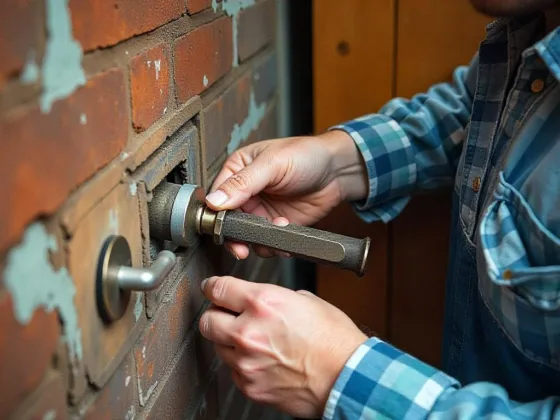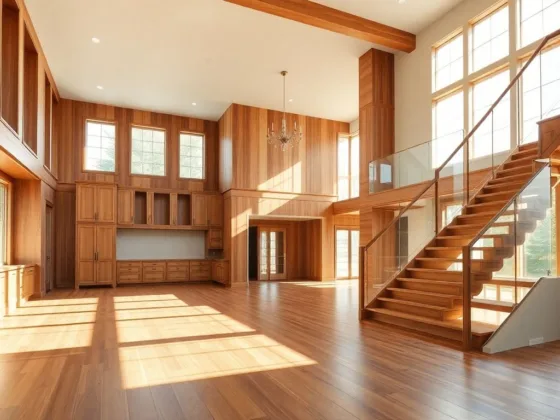Table of Contents Show
It’s easy to catch the renovation itch with the ever-growing number of shows dedicated to knocking down walls and installing new bathrooms.
However, there are a lot of factors to consider before diving into a renovation project, like how long you’re planning on staying in your home and how comfortable you are living with active construction projects.

What If the Remodel Isn’t Worth It?
If you decide an extensive home renovation project isn’t in the cards, it may be time to say goodbye to your space and begin the moving process.
Begin comparing relocation costs, including hiring professional movers, buying packing materials, and hiring an auto shipping company to see if a new start is worth the price.
If you’re not happy in your current city or state, renovating your home will only put a bandaid on a much bigger problem, and you’ll likely end up moving eventually anyways.
Take an honest assessment of your feelings about your current home and determine whether moving might be a better choice for you.
That said, renovating might be the right for you if you’re serious about where you currently live. If you’re unsure whether a remodel is worth the cost, read on for a definitive guide on deciding whether to move house or break down walls.
Read Also:
Moving in Less Than Five Years
Though your bathroom may need a little sprucing, it may not be worth the hassle if your family isn’t around to enjoy the upgraded space. Knocking down walls and hiring contractors is a significant commitment.
If you think there’s a chance you’ll be moving in the foreseeable future, think twice about taking on a renovation project and its costs.
However, if you’ve outgrown your home to the point where it’s either a renovation or a move, sticking to renovations will increase your return on investment (ROI) when the time comes to sell.
You might be wondering: won’t the ROI benefit me even more if I plan to sell my home in the near future? Not exactly.
While you’ll want to fix any major issues and perhaps make minor cosmetic changes before you sell a house, big renovations are generally best left alone. You’ll do better to spend that renovation money on your new home in that case.
However, if you see yourself in your current space for a decent amount of time, then it could be well worth the investment to make it your own.
Sticking It Out
Renovating is a solid investment if you’re opposed to moving within the next five to ten years. That way, you can create a space that caters to your needs without the stress of a significant move or overhauling your life.
Plus, making additions to your current residence benefits your future ROI if you decide to put your house on the market.
Consider using the pull-and-replace plan as your home renovation guide— pull and replace one thing at a time.
This method is a great way to gradually take on the costs of a home renovation instead of dropping large sums of cash upfront. It also keeps your home from turning into a construction site, as big projects can be incredibly disruptive in your day-to-day life.
This method is also beneficial because it gives you the space to think as you make changes to your home.
For example, if you set out with a grand plan to tackle multiple rooms or spaces at once, you may be picturing the end result in your head without any concrete references in the real world.
If you do everything at the same time, you may end up realizing that the pieces don’t come together with the way you envisioned and you may feel disappointed in the outcome.
However, if you tackle the home reno piecemeal, you can appreciate the results of each piece individually and determine how well they may match with your ideas for other rooms.
How To Renovate Your Home
It’s never too early to get an appraisal, whether you’re planning for a sale or not. Hiring professionals to inspect your home before you start renovating is critical to avoid wasted costs and unexpected complications.
After all, spending money on new hardwood floors only to find leaks in your roof may not be the best way to allocate your funds.
A quality inspection or appraisal can also reveal things about your home that you may not have known.
For example, if you’re planning to rip out the carpet in one room and replace it with tile, your plans may change if you find original hardwood flooring underneath the carpeting.
These discoveries are not uncommon with home remodels and redesigns, so try to stay flexible in your ideas in case you run into any welcome (or unwelcome) surprises.
Having a clear plan when you start your home improvement plan is a great way to stay within your budget. Think of how you’re going to save on your home renovation and where you want to splurge.
Then, plan carefully, and make sure you set money aside for any emergencies that may come up.
Construction projects are notorious for running over budget and over schedule, so be sure to build plenty of cushion into your home renovation account. You don’t want to end up with an empty wallet and a half-finished kitchen or bathroom.
Final Thoughts
To renovate or not to renovate is the question, and the answer is entirely up to you. Whether you’re considering a cross-country move or simply want to restore your long-time home, a renovation may be beneficial.
It’s also vital that you consider your lifestyle. For example, do you have kids now? Are you childless but planning to have a few little ones in the future? Will older parents come to live with you?
The amount of space you need, the types of rooms, and more are all important factors to consider before you tackle a renovation. So, take an honest inventory of your current lifestyle and budgetary restrictions, and get ready to build a new future.









